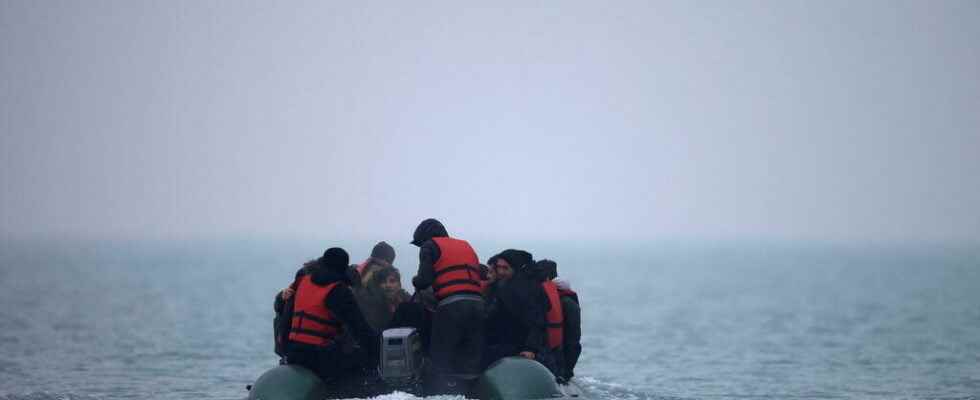In the aftermath of the shipwreck which killed 27 people in the English Channel, between the French and English coasts, one of the priorities of the authorities in France was to put more resources into the fight against smuggling networks. It was also the subject of a European meeting organized a few days later: to better fight against this trafficking.
Gérald Darmanin, the Minister of the Interior, clarified that France had not waited for this tragedy to act. According to him, 1,500 smugglers have been arrested since 1er January. But who are these people arrested? Does their arrest undermine organizations? Marie Casadebaig followed, this Monday, December 6, in Boulogne-sur-Mer, in the North, the trial of three of them. These three men were sentenced to terms ranging from one to four years in prison for having participated in a network to aid the passage of the Channel. A trial that says a lot about the sums at stake and the difficulty of reaching the thinking heads of this trafficking. Report.
” It’s an extraordinary dossier »In the words of the deputy prosecutor, however accustomed to smuggling cases. ” Because it brings to light behind the scenes, she says, an extremely well-oiled and lucrative international company. When the defendants – two Iraqi Kurds and a Syrian – were arrested last August, the police discovered in their vehicle a notebook containing lists of names, sometimes with the words “Baby” – “Baby in English” -, nationalities and sums of money.
Their phones reveal contacts in England, Malta, searches for translations into Vietnamese, photos of boats, embarkations and videos of migrants thanking their smuggler for their successful crossing.
” What resulted from the investigation, according to Guirec Le Bras, public prosecutor of Boulogne-sur-Mer, it is that there were at least 6 passages which had been successful with these boats in practically two months and that there were at each of these passages between 39 and 83 people. This is where it gives an idea of what the network was capable of doing knowing that what the investigation establishes with certainty is only part, in principle, of the traffic that could be generated. “
He recruited candidates to the passage in the jungle to “pay for his own crossing”
British investigators, who helped identify the passages in question, come to believe that the network was able to transport more than 500 people in two months for an amount of 1.3 million euros. A name comes up during the trial, a certain “Tonton Souka”, an Iraqi Kurd, obviously one of those responsible.
But it is its executors who face the court: two mechanics, also Kurds, who are offered 500 euros per repaired boat engine. The opportunity is too good. And a young man of 23 who presents himself as Syrian. He was recruiting candidates for passage through the jungle to ” pay for your own crossing », He specifies. But he admits having given up on boarding certain overloaded boats himself.
” The word “ferryman” is an inadequate word, explains Me Kamel Abbas, his lawyer. It does not reflect the reality of what people may experience. My client was himself a candidate for emigration to England. He was robbed and alpaca by a network that asked him to help pass migrants in exchange for free passage. This happens a lot more often than we would like to say. That is what made that person end up in court. “
This story of a simple victim does not convince the court. But for lack of sufficient evidence, the young Syrian receives four years in prison. For the prosecution, which had requested much heavier penalties, it is indeed entrepreneurs who could not ignore the danger they were making their customers take. They can’t do it at all since the sinking of November 24th.
